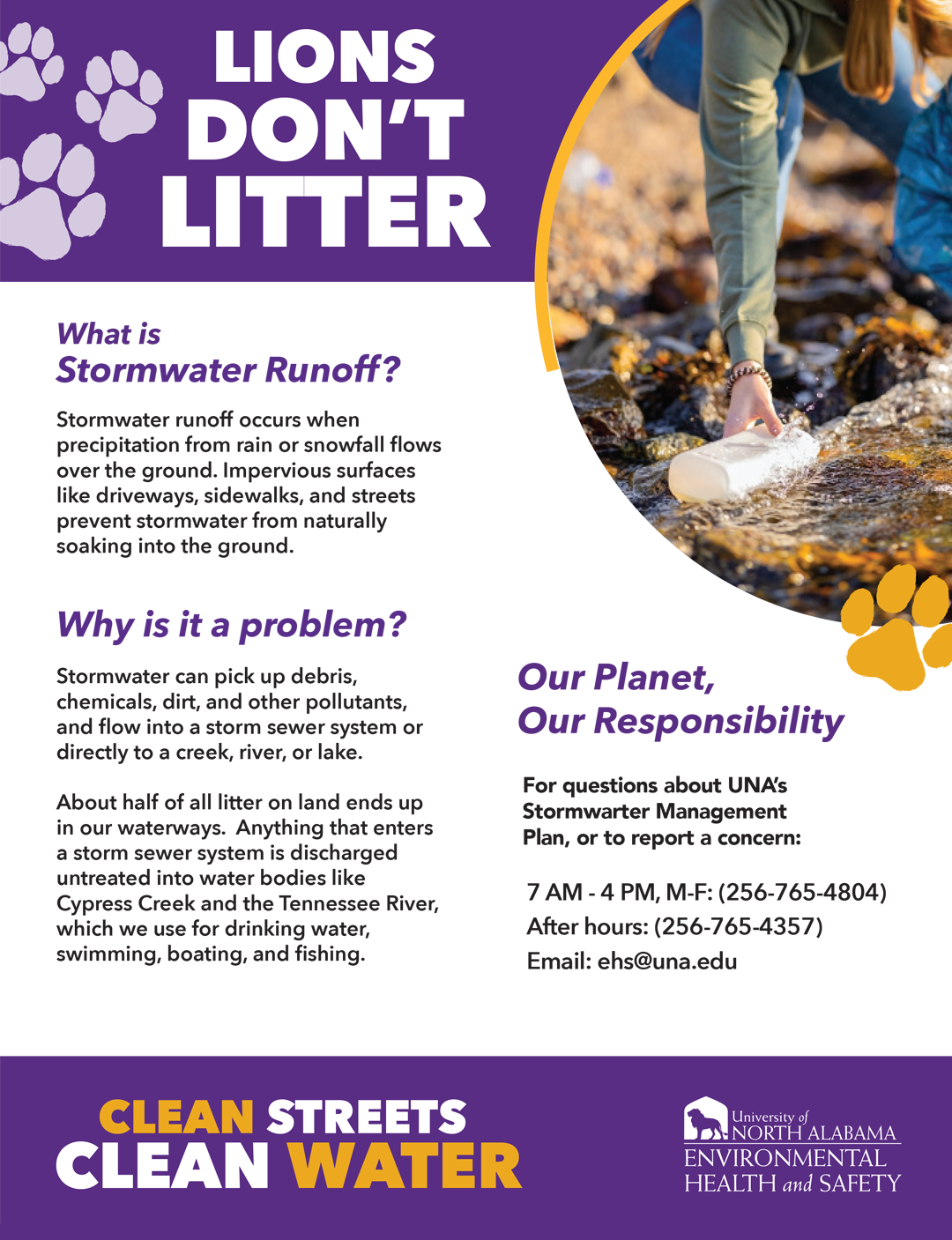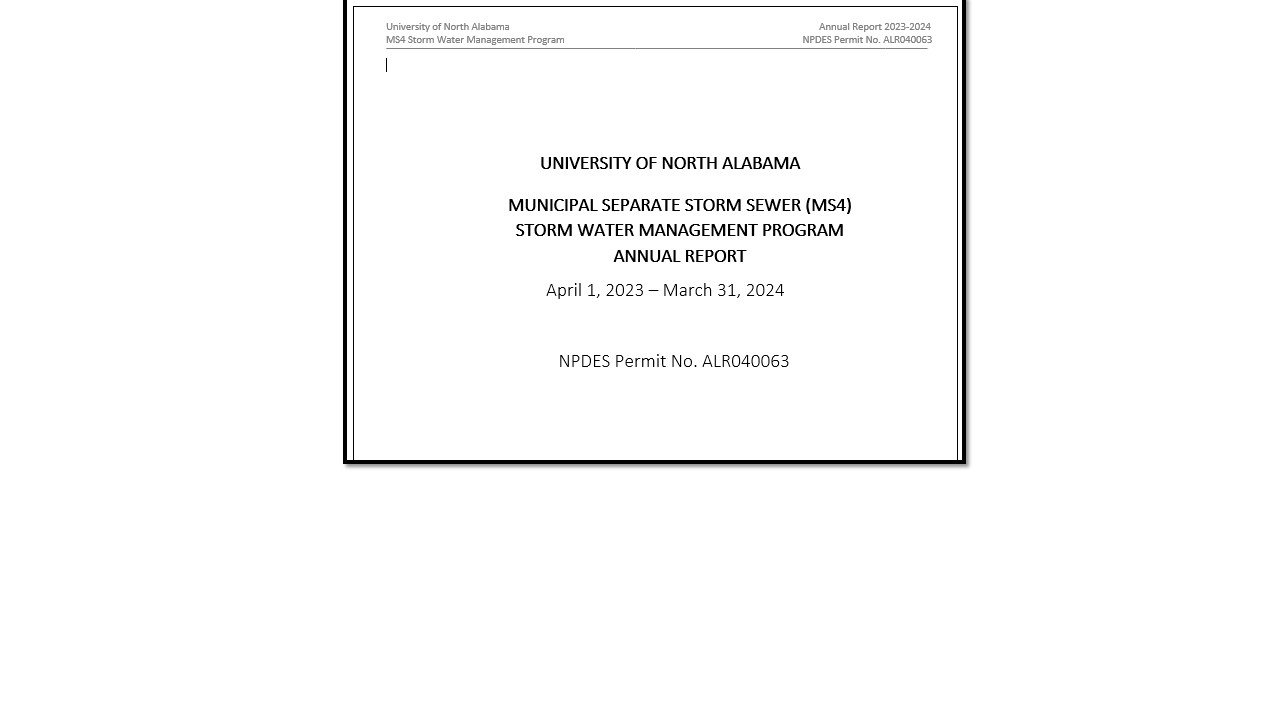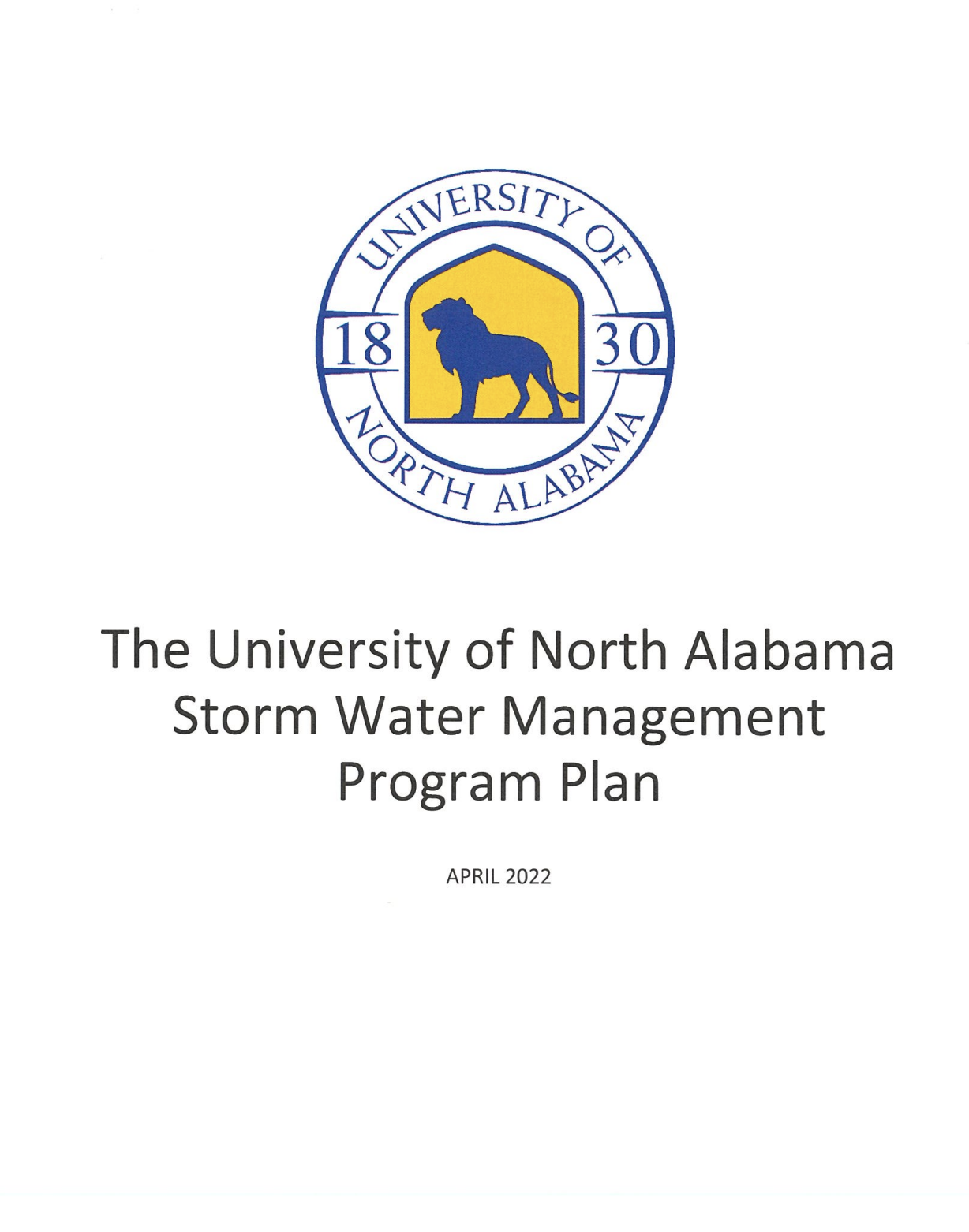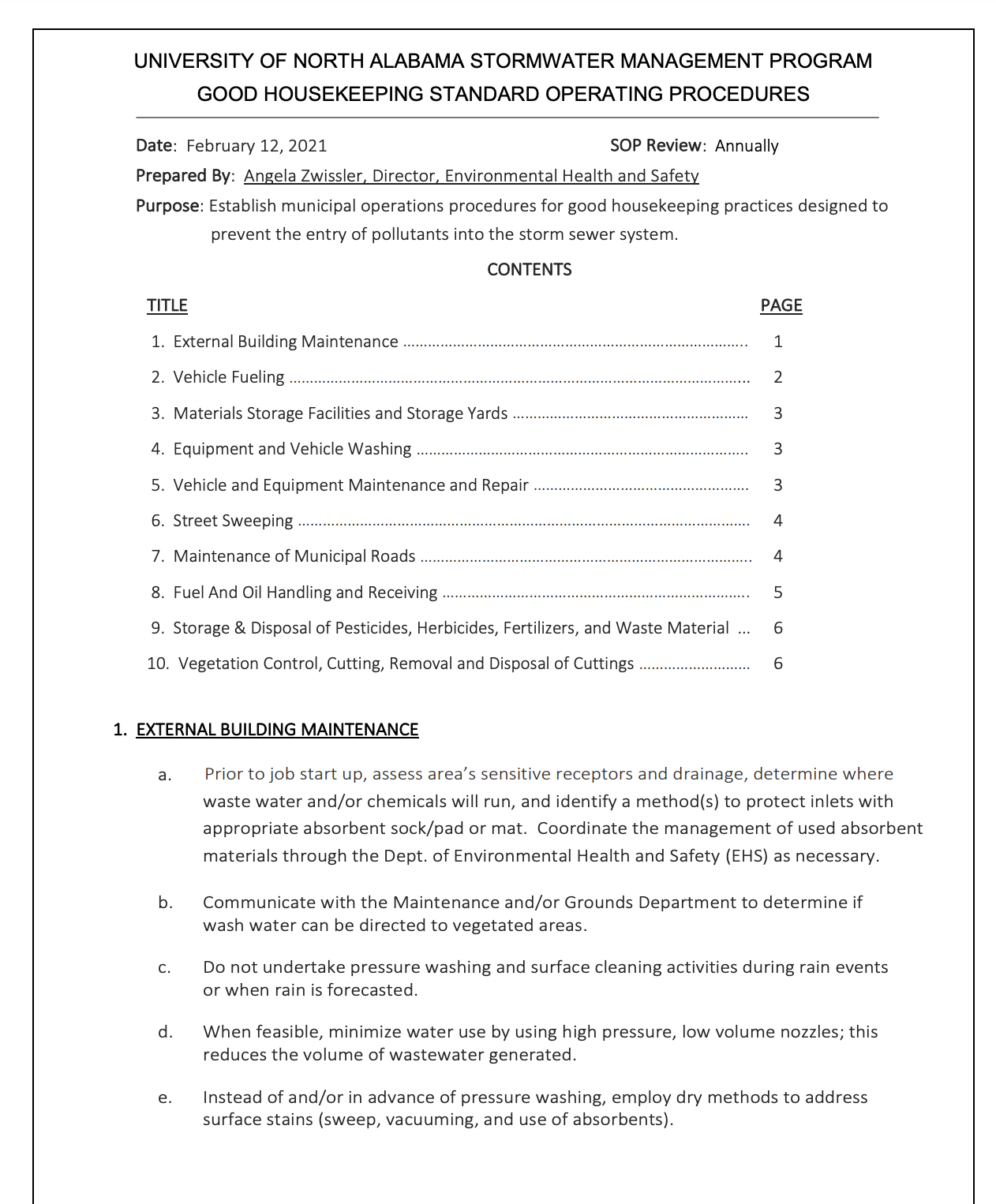Introduction

The University of North Alabama has been issued a National Pollutant Discharge Elimination System (NPDES) permit for storm water discharges from regulated small municipal separate storm sewer systems (MS4). The Department of Environmental Health and Safety (EHS) is responsible for management of the Storm Water Management Program Plan (SWMPP).
The purpose of the SWMPP is to describe the Best Management Practices (BMPs) utilized to:
- Reduce the discharge of pollutants from the campus to the maximum extent practicable
- Protect the water quality of Cypress Creek
- Satisfy the requirements of the Clean Water Act (CWA)
Report a Storm Water Concern
If you wish to report a storm water concern or potential illicit discharge on the university's property, send an email to: ehs@una.edu
Illicit Discharge Definition - As defined at 40 CF Part 122.26(b)(2): refers to any discharge to a municipal separate storm sewer that is not entirely composed of stormwater, except discharges authorized under an NPDES permit (other than the NPDES permit for discharges from the MS4) and discharges resulting form fire fighting activities. A list of authorized discharges can be found in the Storm Water Management Program Plan (SWMPP).
Storm Water Management Program Plan
Policy on Illicit Discharge Detection and Elimination
Effective Date: May 13, 2020
PURPOSE: This policy is intended to define illicit discharges of pollutants to storm water and the consequences of such discharges at the University of North Alabama.
Illicit Discharge Definition: As defined at 40 CFR Part 122.26(b)(2), this refers to any discharge to a municipal separate storm sewer that is not entirely composed of storm water, except those authorized under an NPDES permit and those of fire-fighting activities. This can include the discharge of materials to the storm drainage system via overland flow or direct dumping of materials into a catch basin or inlet. Examples of illicit discharges include overland sediment from construction activities, drainage from car washing or cleaning paint brushes in or around a catch basin.
Illicit Connection Definition: The discharge of pollutants or non-storm water materials into the storm drainage system via a pipe or other direct connection. Sources of illicit connections may include sanitary sewer taps, wash water from laundry facilities, wash water from sinks, or other similar sources.
- Illicit Discharges - No University employee, student, visitor, contractor, department, or unit shall cause or allow discharges into the University of North Alabama storm drainage system which are not composed entirely of storm water, except for the allowed discharges listed in Section 3. Prohibited discharges include but are not limited to: oil, anti-freeze, grease, chemicals, wash water, paint, animal waste, garbage, sediment and litter.
- Illicit Connections - The following connections are prohibited, except as provided in Section 3 below:
- Any drain or conveyance, whether on the surface or subsurface, which allows any nonstorm water discharge, including but not limited to sewage, process water, waste water, or wash water, to enter the storm water drainage system, and any connections to the storm drain system from indoor drains or sinks.
- Allowed Discharges - The following discharges to the storm drainage system are allowed:
- A.Discharges that are specifically permitted under a State or federal stormwater program.
-
- B. Incidental non-storm water discharges which do not significantly contribute to the pollution of University of North Alabama surface waters and are limited to the following:
-
- i. water line flushing
-
- ii. landscape irrigation
-
- iii. diverted stream flows
-
- iv. uncontaminated ground water infiltration
-
- v. uncontaminated pumped groundwater
-
- vi. discharges from potable watersources
-
- vii. foundation drains
-
- viii. air conditioning condensate
-
- ix. irrigation water (not consisting of treated or untreated wastewater)
-
- x. rising ground water
-
- xi. springs
-
- xii. water from crawl space pumps
-
- xiii. footing drains
-
- xiv. lawn watering runoff
-
- xv. individual residential car washing, to include charitable carwashes
-
- xvi. residual street wash water
-
- xvii. discharge or from firefighting activities, including fire hydrant flushing
-
- xviii. flows from riparian buffers and wetlands
-
- xix. dechlorinated swimming pool discharges
-
- xx. discharged authorized and in compliance with a separate NPDES permit
- C. In the event that the University of North Alabama determines that any of the above discharges contribute to pollution of campus streams or other surface waters or is notified by a State or federal government agency, such as the Alabama Department of Environmental Management, that the discharge must cease, the University of North Alabama will instruct the responsible person to cease thedischarge.
- D. When instructed to cease the discharge, the discharger of substances newly classified as pollutants shall cease the discharge immediately and be given reasonable time to make corrections so that the discharge will not continue into the future.
- E. Nothing in this SOP shall affect a discharger’s responsibilities under federal or State law.
-
- 4. Enforcement and Penalties
-
- A. Whenever the University of North Alabama finds that a violation of this SOP has occurred; the University may order compliance by written notice to the responsible person. Such notice may require withoutlimitation:
-
- i. The performance of monitoring, analyses, andreporting
-
- ii. The elimination of prohibited discharges or connections.
-
- iii. Cessation of any violating discharges, practices, operations.
-
- v. The abatement or remediation of storm water pollution or contamination hazards and the restoration of any affectedproperty.
-
- v. Payment of any fee, penalty, or fine assessed against University of North Alabama to cover remediation cost.
-
- vi. The implementation of new storm water management practices.
-
- vii. Disciplinary action up to and including dismissal, whereappropriate.
- B. Such notification shall set forth the nature of the violation(s) and establish a time limit for correction of these violation(s). Said notice may further advise that, if applicable, should the violator fail to take the required action within the established deadline, then University of North Alabama Environmental, Health and Safety Department will initiate work orders for the appropriate corrective actions and the individual or University department will be charged for the cost.
-
Standard Operating Procedures for Good Housekeeping
Annual Report



